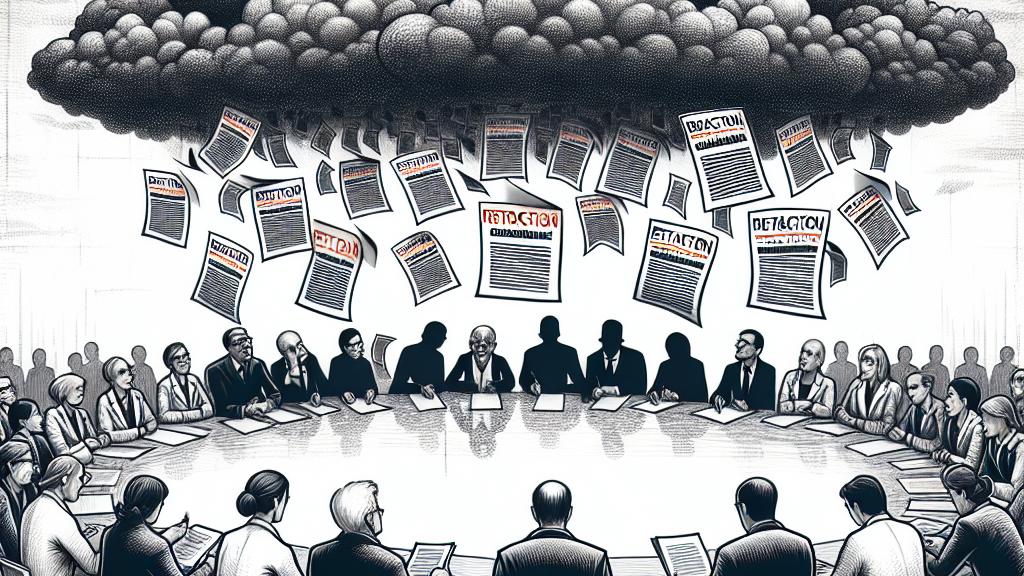Understanding Why Highly Cited Scientists Sometimes Retract Their Research
Overview
- A staggering revelation: over 8,000 top-cited researchers have faced retractions.
- Surprisingly, many retracted studies exhibit elevated self-citation rates.
- Diverse global trends highlight significant disparities in retraction rates.

The Growing Concern of Retractions
In the contemporary academic landscape, the prevalence of retractions among highly esteemed scientists is not just alarming, it's bewildering. According to compelling findings from Retraction Watch, a shocking number—over 8,000 of the world's most-cited researchers—have at least one retracted paper under their names. Each retraction often sparks debate: while some arise from honest errors or unexpected outcomes, they cast long shadows over the credibility of scientific research. Imagine if your favorite teacher was found to have, at one point, given grades based on faulty information; that would undoubtedly shake your confidence in their decisions, wouldn’t it? Each retraction can lead to a ripple effect of doubts across entire fields of study.
The Intriguing Role of Self-Citation
What’s even more fascinating is the relationship between retractions and self-citation. The study led by renowned epidemiologist John Ioannidis reveals a compelling trend: papers that are ultimately retracted demonstrate significantly higher self-citation rates than those that remain intact. This raises eyebrows, as it suggests that certain researchers may be inflating their own impact—a bit like a student who, instead of highlighting the great work of others, consistently points to their own achievements in conversations. For example, if a student boasts about winning a science fair but disregards that other participants had equally impressive projects, it creates an imbalanced view of their capabilities. Such inflation can overshadow genuine contributions and boasts a deceptive sheen, jeopardizing the integrity of academic discourse.
Global Trends in Retractions: A Closer Look
Now, let’s zoom out and examine the international picture regarding retractions. Disturbing patterns emerge, revealing that countries like India and China report some of the highest retraction rates among influential researchers, while nations like Finland and Belgium consistently maintain lower statistics. These glaring disparities highlight pressing systemic issues and variations in research ethics across different regions. It’s not unlike classrooms in varying schools; if one institution has perpetual issues with cheating while another promotes a culture of honesty, students’ reputations will undoubtedly reflect that. Such differences not only impact individual careers but also shape global trust in the scientific community, raising serious concerns about the value of research worldwide.

Loading...